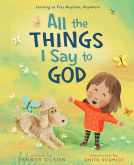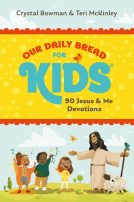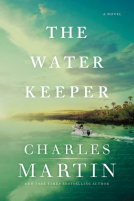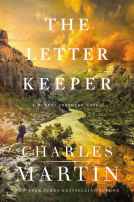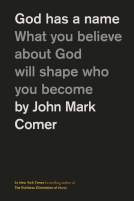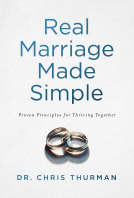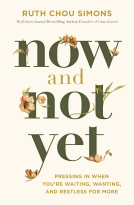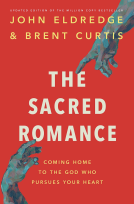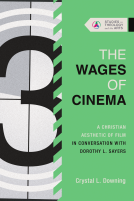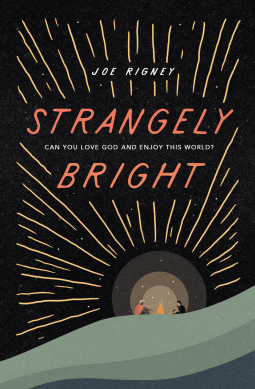
Strangely Bright
Can You Love God and Enjoy This World?
by
This title was previously available on NetGalley and is now archived.
Send NetGalley books directly to your Kindle or Kindle app
1
To read on a Kindle or Kindle app, please add kindle@netgalley.com as an approved email address to receive files in your Amazon account. Click here for step-by-step instructions.
2
Also find your Kindle email address within your Amazon account, and enter it here.
Pub Date Aug 25 2020 | Archive Date Aug 05 2020
Talking about this book? Use #StrangelyBright #NetGalley. More hashtag tips!
Description
How do Christians enjoy the good things of the earth while still enjoying the Creator? Scripture supports the wholehearted enjoyment of both. Here is a book for Christians struggling to enjoy the things of earth for the glory of God.
A Note From the Publisher
PDF may not be compatible with all reading devices
Advance Praise
“Many of us are illiterate when it comes to reading anything other than a book. Joe follows Scripture’s example by teaching us how to read the world, the creation, and the gifts of God under the authority of the word of God. This is an important book and I hope you’ll read it.”
—Abigail Dodds, author, (A)Typical Woman: Free, Whole, and Called in Christ
“God’s passion for his glory and our ache to be truly happy are not at odds but rather one life-changing pursuit. And so too with God himself and the world he made—not at odds but rather God means for us to enjoy him in everything, and everything in him. It sounds so simple, but in our finitude and fallenness, we are so prone to get tripped up over this. For years, Joe Rigney has handled this dilemma as well as anyone I’m aware of, and now he does it with even more focus and accessibility. I’ve eagerly awaited this short book with its life-changing vision, and I could hardly be more excited that it’s finally here.”
—David Mathis, Executive Editor, desiringGod.org; Pastor, Cities Church, Saint Paul, Minnesota; author, Habits of Grace: Enjoying Jesus through the Spiritual Disciplines
“Since Constantine entered Rome in October of AD 312 and ended Christian persecution, the faithful have struggled with their embrace of God and their love for the world. Instead of gladiator games, it’s UFC. Instead of pagan celebrations, it’s Netflix binging and secularized holidays. How can Christians in the twenty-first century enjoy the world without sacrificing their primary obligation to love the Lord? Joe Rigney provides remarkably timely advice on enjoying God’s creation, while still putting God above his creation.”
—Erick-Woods Erickson, Editor, The Resurgent
“The path to wisdom and joy involves asking the right questions in the right way, with help from reliable sherpas when the going gets tough. My friend Joe Rigney is one such sherpa, who asks questions like, How does the single-minded pursuit of God’s glory fit with a sincere enjoyment of created things? And then he humbly writes books, big and small, as an answer. Rigney’s Bible-saturated imagination and down-to-earth wit, along with his ridiculously good prose, make Strangely Bright a special created thing that leads us deeper into the heart of the Creator.”
—Jonathan Parnell, Lead Pastor, Cities Church, Saint Paul, Minnesota; author, Mercy for Today and Never Settle for Normal
Available Editions
| EDITION | Other Format |
| ISBN | 9781433569357 |
| PRICE | $14.99 (USD) |
Links
Featured Reviews
 Cat C, Reviewer
Cat C, Reviewer
Strangely Bright is such a heartwarming book that reminds us to enjoy and not to be afraid to enjoy the good things of this world and to direct our praise to the one of who gives them. It's short but rich and such a joy to read. The chapter about suffering was particularly helpful and moving. I would highly recommend this book.
 Jeanie S, Reviewer
Jeanie S, Reviewer
And then turn your your eyes upon Jesus. Look full in his wonderful face. And the things of earth will grow strangely bright, in the light of his glory and grace.
The tension of the Gospel is can you love God and enjoy this world? The short answer is yes and the long answer is how and that is what this text is about. It is about worship in spirit and in truth. Loving the creation more than the creator is when we have made an idol however, there is true joy when we enjoy the things of this world in worship and in thankfulness in Christ. The chapters listed will give you an ideal where our worship is grounded in.
What the Heavens Declare
Pleasures in the Garden
Enjoying the Gifts when Jesus is Better
Anchor Points
Denying Ourselves and sharing our riches.
When the things of earth are lost
Treasure in the field.
This is a introductory of how worship begins. Christianity is not a one stop shop but a journey of enjoying God. It is enjoying God that we are able to do the hard stuff of denying ourselves and sharing our riches. It becomes not about our circumstances but whose presence we are in. Jesus becomes our treasure. It is believing God has something better for us. It is not of this world but of the next. He does give us something and that is hope. When Christianity grew to a tremendous growth, it was what men and women alike were willing to die for. Before we can die for something, we must live for something. God reveals himself in everything. Are we listening? Are we watching? The word of God points us to what he is revealing. We have the opportunity to share that others and to grow in faith.
So enjoy what God has given you. Worship God and see his glory. His glory abounds when his kingdom reigns. Jesus is our example of the joy that set before him. Let it be our joy as well.
A special thank you to Crossway Publishing and Netgalley for the ARC and the opportunity to post an honest review.
First sentence: This little book has a simple purpose. I want to address a problem that I suspect many readers have felt, even if you’ve never named it. If you’re a faithful Christian, this problem or tension has probably haunted you, playing at the back of your mind and affecting you in subtle ways...how does a single-minded pursuit of the glory of God fit with a real and deep enjoyment of created things?
In Joe Rigney's newest book, Strangely Bright, he addresses the tension between loving God and loving the world. He insists it isn't an either or question. It isn't either we love God with all our hearts, souls, and mind and hate the world....or love the world with all our hearts, souls, and minds and hate God. There is room in our hearts--in our lives--to love both. He uses Scripture to back up his argument.
Of course, he knows that there are Scriptures to support both viewpoints. There are scriptures that tend to insist that we are to love God and only God and hate the world. There are scriptures that encourage us to celebrate life and all of God's gifts--to see God, to see God's blessings and gifts, to see God's providence in everything. Rigney encourages readers to embrace all the Scriptures have to say. Don't limit your loves and call yourself pious, in other words.
I like that each chapter tends to focus on one or two passages of Scripture at a time. This keeps it manageable to keep up and follow his argument.
Did I like this one? Love it? Well. I found it a bit strange. I'll try to clarify exactly what I mean. Is it possible to agree with his conclusion but not exactly how he arrived there??? I believe we were created to enjoy, to experience joy. I also believe this only truly works when God is at the center. Or perhaps at the top? However you want to phrase it. I believe in priorities and not necessarily excuses. In other words, it would be super super easy to use the "well, God is in everything and everything is in God" argument (I actually hate that phrasing but Rigney uses it in his book, so there you go) and enjoy a lot of things that God really isn't all that crazy excited about.
Also I don't really think people need encouragement to enjoy the world more. I don't think we live in a culture--a Christian culture--of self-denial and minimalism. I don't think the majority Christian culture is all that "set apart" and isolated from worldly pleasures and experiences. Perhaps a few people do feel guilty about how much pleasure they take in various experiences. But I don't think most do. And places where guilt is occurring may not connect directly with I'm sinning against God by enjoying XYZ. For example, a person may feel guilty about REALLY loving cheesecake. But if you get right down to it, it has more to do with body image, what culture has to say about what we eat, about what we look like, about what we should be doing or not be doing. There might be a lot of regret when we give into temptation--but I doubt "I am sinning by daydreaming about cheesecake instead of daydreaming about Jesus coming back isn't going to be on a top ten list" Or "I hate myself because I love cheesecake more than reading the Bible."
I do think people need more encouragement to actually take joy--find joy--live joyfully--IN Christ. I think more people are binging on the world than on Jesus Christ. If people actually lived more in the Bible and actually tasted and saw God in all his glory--or as much of His glory as we can humanly fathom--we'd rightly appreciate God in relation to his blessings and gifts.
A book that I would recommend instead is probably The Practice of the Presence of God. Or perhaps John MacArthur's Found: God's Will.
I also found it a bit strange in conveying ideas.
First, as we’ve seen, creation is designed by God to show us what he is like. Or, to be more specific, creation is designed to reveal who Jesus is. God has designed the entire universe to reveal Jesus. Long before you and I existed, long before Jesus came in the flesh, before the Bible was written down, from the very beginning God invented something called “hunger” and something called “bread” so that some day, when Jesus showed up, we would have categories for understanding who he is. In other words, when Jesus says, “I am the bread of life,” he’s not finding or discovering a convenient metaphor. He’s revealing the main reason that bread exists. Every growling stomach, every empty belly, every hearty meal, every satisfied hunger in the history of the world has been leading to the moment when Jesus shows up and people ask, “Who are you?” and he replies, “I am the bread of life.” Second, in this case, it’s not merely that God’s creation reveals who Jesus is. Human culture reveals who Jesus is. Jesus says that he is the bread of life, not the grain of life. Grain is something that God makes. Bread is something that people make out of the grain that God makes. That’s what culture is—a mixture of God’s creation and man’s creativity. And this tells us that not only is creation designed to reveal God, but human culture is also capable of showing us what God is like. When we faithfully mingle our creative labor with God’s creation, we glorify the things of earth. Bread is grain, but glorified through man’s efforts. Wine is grapes, but glorified through man’s efforts. While human culture is fallen and broken by sin, it is still able to be a reflection of divine wisdom and glory so that we can know who Jesus is and how we should relate to him.
I would have to spend a lot of time trying to think through this before I arrive at a conclusion if I agree or disagree with this argument.
But there were plenty of places we do agree.
To say that we desire nothing besides him is an empty compliment if it is literally true. It would be as if to say, “I desire nothing besides you because I’ve never desired anything at all.” But surely what the psalmist means is, “I have desired many things in my life, many things of earth. But compared to you, they are as nothing. You are my strength. You are my portion. Jesus is better.”
Readers who liked this book also liked:
Crystal Bowman; Teri McKinley
Children's Nonfiction, Christian, Religion & Spirituality
Wanda E. Brunstetter
Christian, Cooking, Food & Wine

